Vietnam to encourage eco-industrial parks with international support
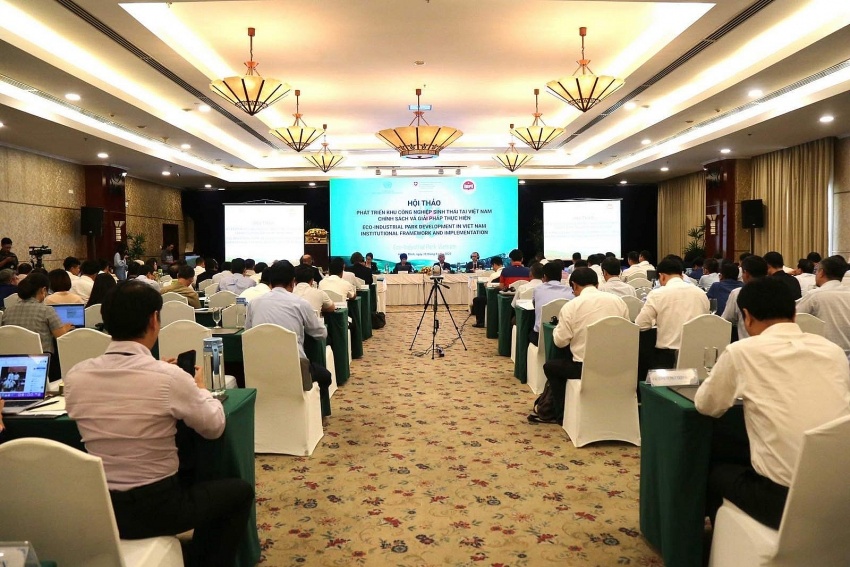 |
| Vietnam to continue to encourage the eco-industrial parks model with help from the international community |
The workshop themed “Eco-industrial park development in Vietnam: Institutional framework and implementation” was held by the Ministry of Planning and Investment (MPI), United Nations Industrial Development Organization (UNIDO), and the Swiss State Secretariat for Economic Affairs (SECO) in Ho Chi Minh City on September 15. Representatives of authorities, industrial parks (IPs), and economic zones discussed policies for and measures to develop eco-IPs in Vietnam.
Deputy Minister of Planning and Investment Nguyen Thi Bich Ngoc said eco-IPs play an important role in the national sustainable development strategy. However, in order to take this model to exercise its role, it needs to be multiplied nationwide, with support from policy, technology, finance, information, and a close connection mechanism between domestic agencies and international organisations.
| In the 2020-2023 period, the Swiss government is continuing to help three industrial parks in five cities and province of Ho Chi Minh City, Haiphong, Dong Nai, Can Tho, and Danang convert into eco-industrial parks in accordance with an international framework. |
“In order to encourage this model, it is necessary to issue more guidelines on technical regulations and standards by ministries and sectors as well as technical guidance from domestic and international experts, especially for industrial symbiosis networks and circular economy solutions. In addition, the investors need a commitment about preferential policies on finance to expand this model,” Ngoc said.
In the 2020-2023 period, the Swiss government is continuing to help three IPs in five cities and province of Ho Chi Minh City, Haiphong, Dong Nai, Can Tho, and Danang convert into eco-IPs in accordance with an international framework.
The support comes from a project that aims to deploy eco-IPs in Vietnam under the approach of the Global Ecological Industrial Park Programme, which will serve as a premise to multiply the model across the country.
The project's finances are at $1.8 million, which is expected to improve the economic, environmental, and social efficiency of the industry and include regulations on eco-IP development in relevant mechanisms and policies.
Werner Bardill, consul general at the Embassy of Switzerland said, “We see that many enterprises pioneer in implementing solutions to save energy and use natural resources effectively during the operation process. We hope that more and more real estate developers will join the changing process from traditional IPs to eco-IPs.”
Between 2015 and 2019, the MPI, UNIDO, SECO, and other sponsors worked together to pilot models of eco-IPs in Ninh Binh, Danang, and Can Tho. As a result, 72 businesses have implemented more than 900 energy-saving and cleaner production solutions, which helps them to save $3.3 million and simultaneously cut 32 kilotonnes of CO2 annually.
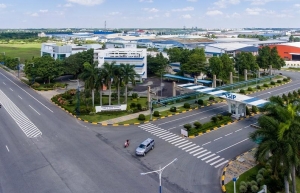 | Trend to develop eco-industrial parks dominates at forum Stakeholders at the Industrial Property Forum 2022 agreed that developing eco-industrial parks and combining several functions with environmental protection shall be the new direction. |
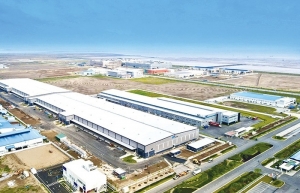 | Green industrial complexes at top of foreign-led wishlist Creating favourable mechanisms for developing integrated eco-industrial parks is expected to make these investments more appealing to large foreign groups. |
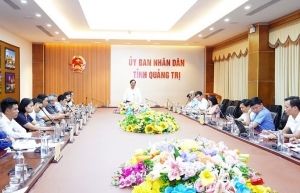 | Trend of eco-industrial parks becoming inevitable The rising development of eco-industrial parks is set to contribute to the national target of reducing greenhouse gas emissions. |
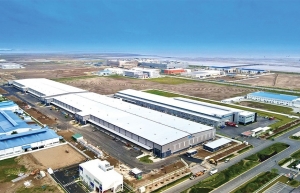 | Investors face up to complex eco-industrial park process Although a new decree on the management of industrial and economic zones in Vietnam has been set up to drive the modernisation of the industrial park model, investors are lacking specific guidelines for implementation. |
What the stars mean:
★ Poor ★ ★ Promising ★★★ Good ★★★★ Very good ★★★★★ Exceptional
 Tag:
Tag:
Related Contents
Latest News
More News
- Vietnamese businesses diversify amid global trade shifts (February 03, 2026 | 17:18)
- Consumer finance sector posts sharp profit growth (February 03, 2026 | 13:05)
- Vietnam and US to launch sixth trade negotiation round (January 30, 2026 | 15:19)
- NAB Innovation Centre underscores Vietnam’s appeal for tech investment (January 30, 2026 | 11:16)
- Vietnam moves towards market-based fuel management with E10 rollout (January 30, 2026 | 11:10)
- Vietnam startup funding enters a period of capital reset (January 30, 2026 | 11:06)
- Vietnam strengthens public debt management with World Bank and IMF (January 30, 2026 | 11:00)
- PM inspects APEC 2027 project progress in An Giang province (January 29, 2026 | 09:00)
- Vietnam among the world’s top 15 trading nations (January 28, 2026 | 17:12)
- Vietnam accelerates preparations for arbitration centre linked to new financial hub (January 28, 2026 | 17:09)






















 Mobile Version
Mobile Version